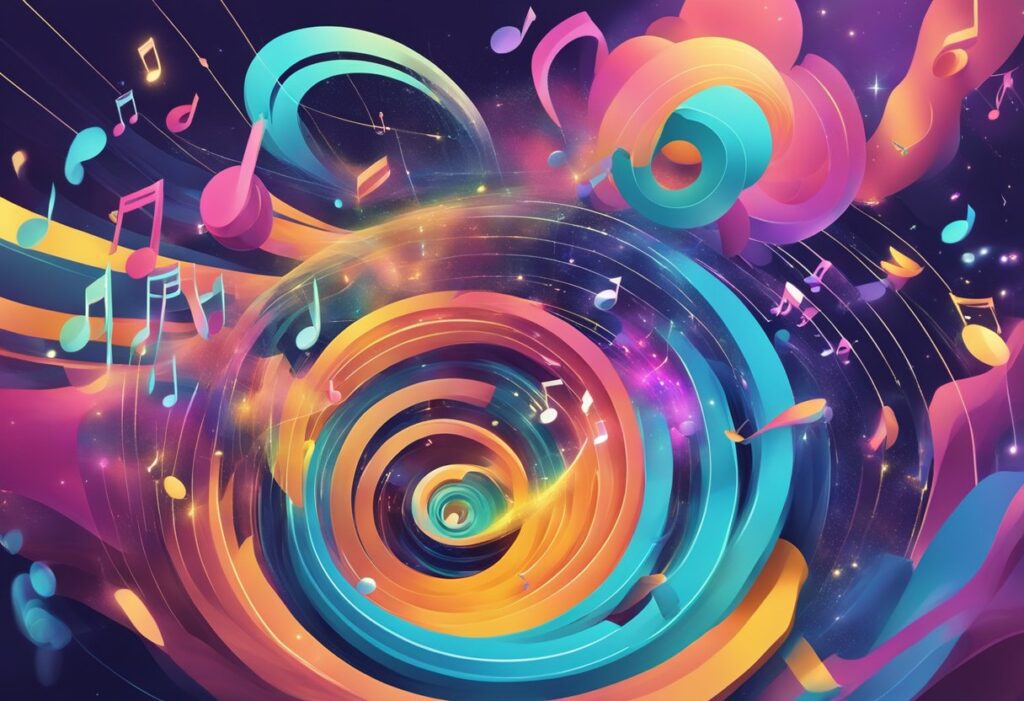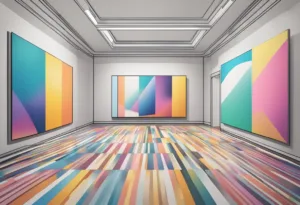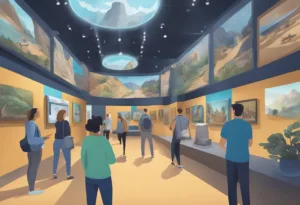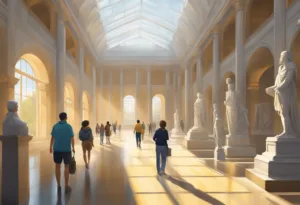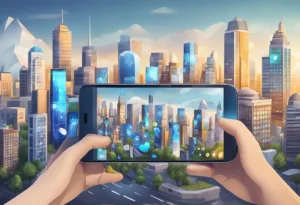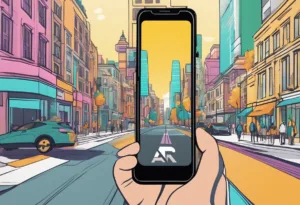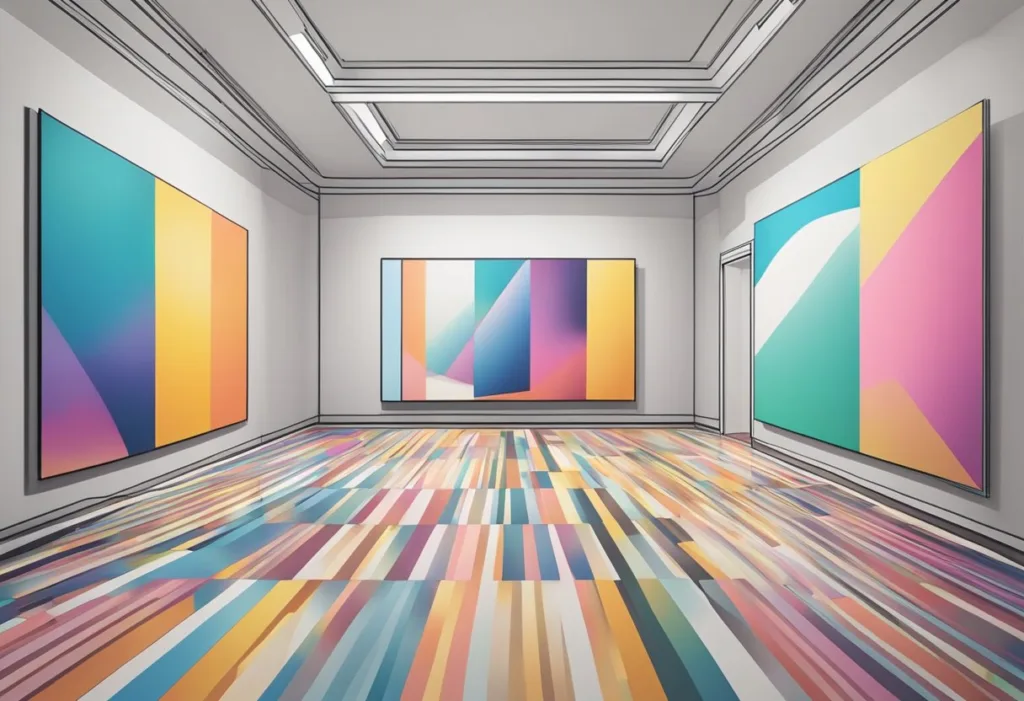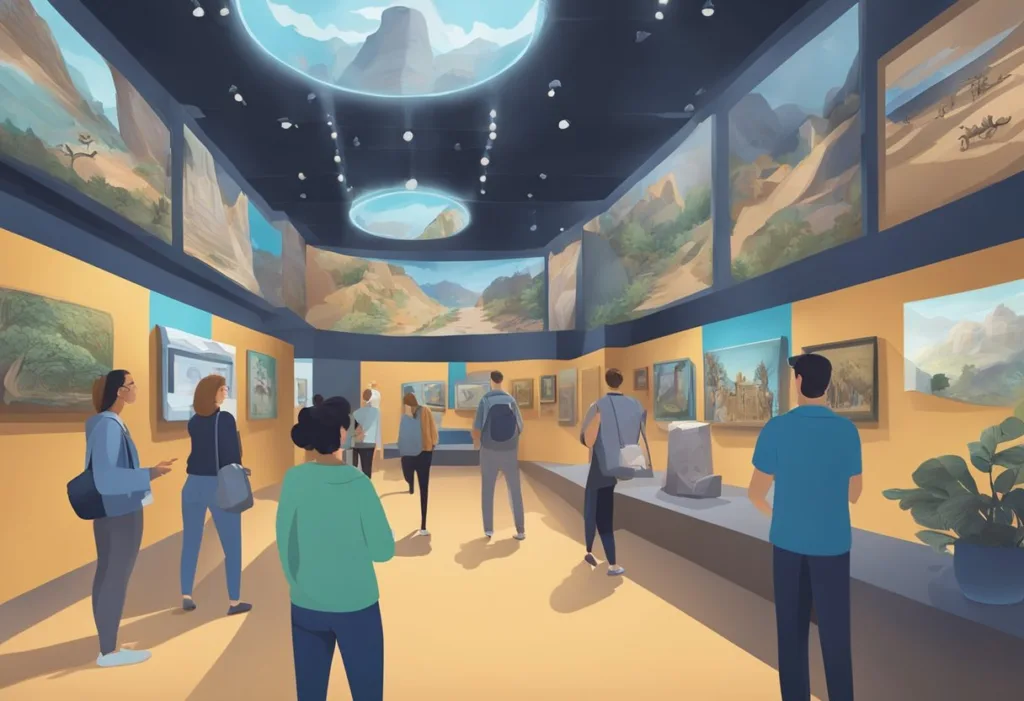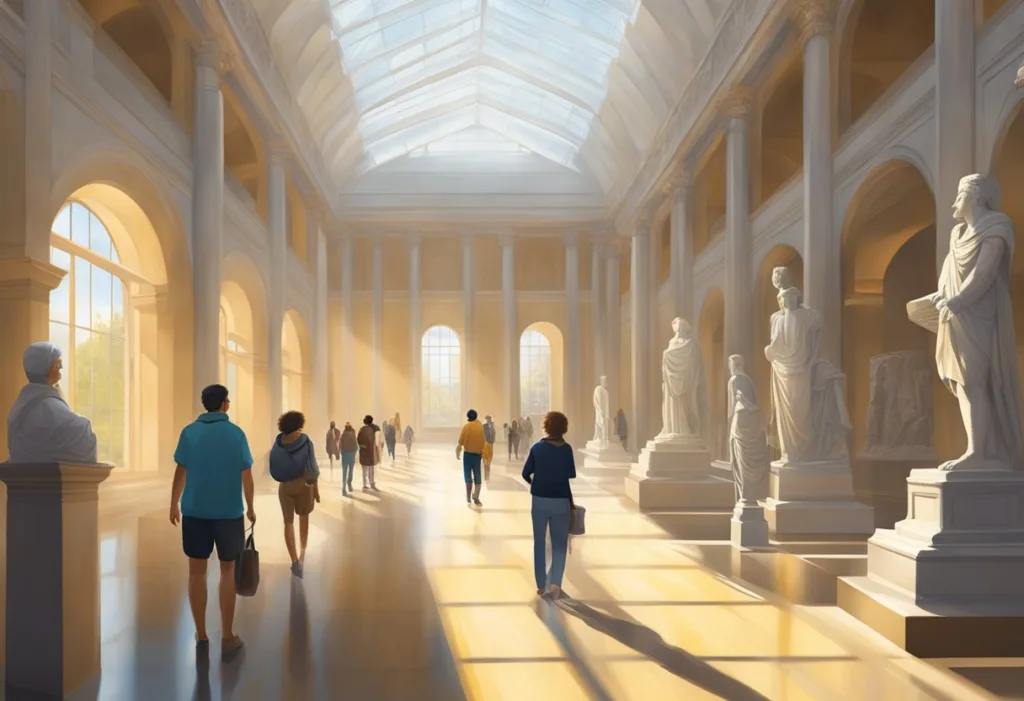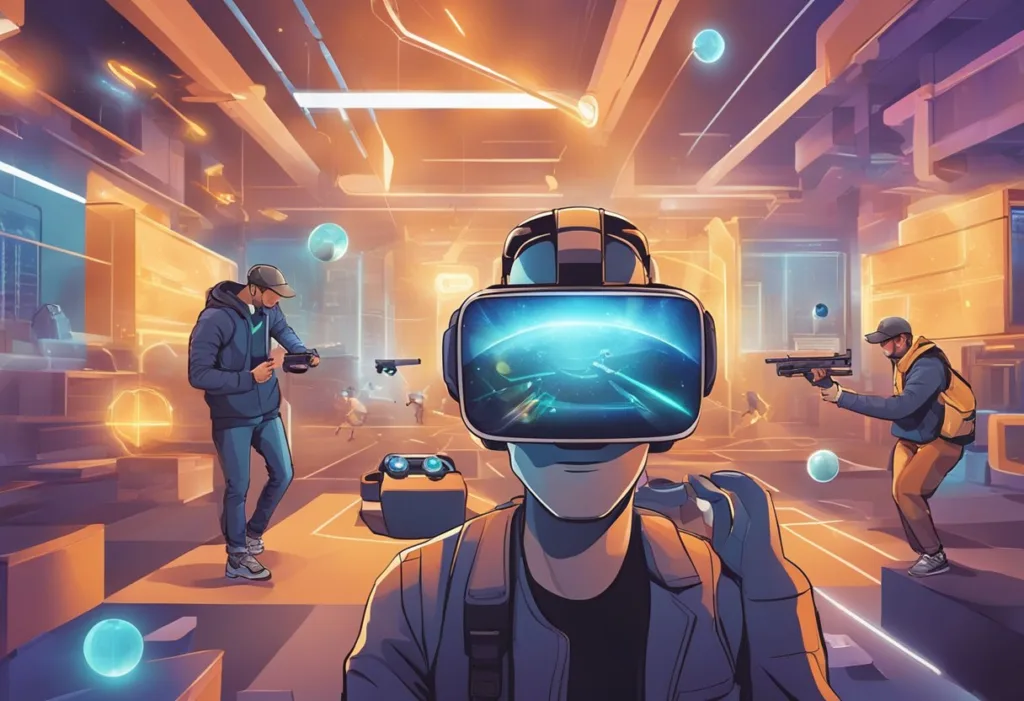The concept of the metaverse has been gaining traction in recent years, with many industries exploring the possibilities of this digital world. One area that has been particularly interested in the potential of the metaverse is the music industry. With the rise of digital technology and the internet, music has already undergone significant changes, and the metaverse could be the next step in this evolution.
The metaverse offers a unique space for music to exist and thrive, with the potential for immersive and interactive experiences that go beyond traditional concerts and performances. This digital world could allow for new forms of collaboration and creativity, as well as new ways for artists to monetize their work. The metaverse could offer a new way for fans to connect with their favorite artists and each other, creating a community that transcends physical boundaries.
As the metaverse continues to develop, it will be interesting to see how the music industry adapts and evolves to take advantage of this new digital space. With the potential for new forms of creativity, collaboration, and community, the metaverse could be the future of music.
Evolution of Music in the Metaverse
The metaverse has presented new opportunities for musicians, brands, and fans. The concept of the metaverse has been around for over 30 years, but it is only now that it is becoming a reality. The evolution of music in the metaverse has been remarkable, with physical concerts giving way to virtual concerts and the rise of virtual reality and augmented reality in music.
From Physical to Virtual Concerts
The pandemic has had a significant impact on the music industry, with many musicians and bands unable to perform live concerts. This has led to the rise of virtual concerts that have been streamed live to fans around the world.
Virtual concerts have enabled musicians to reach a wider audience and have given fans the opportunity to experience live music from the comfort of their homes. Virtual concerts have also allowed for new revenue streams for musicians and have opened up new opportunities for brands to reach out to their target audience.
Impact of the Pandemic on Digital Music Experiences
The pandemic has also accelerated the adoption of digital music experiences. With people spending more time at home, there has been a surge in streaming services, with platforms like Spotify and Apple Music seeing a significant increase in subscribers.
The pandemic has also led to the rise of social listening platforms like JQBX and Discord, where users can listen to music together and chat with each other.
Rise of Virtual Reality and Augmented Reality in Music
Virtual reality and augmented reality have become increasingly popular in the music industry. Virtual reality allows fans to experience concerts in a completely immersive way, with 360-degree views and the ability to interact with the environment.
Augmented reality, on the other hand, allows for a more interactive experience, with fans being able to interact with virtual objects and characters during a concert. The use of virtual and augmented reality in music has opened up new possibilities for musicians and has given fans a whole new way to experience live music.
The evolution of music in the metaverse has been remarkable, with physical concerts giving way to virtual concerts and the rise of virtual reality and augmented reality in music. The pandemic has accelerated the adoption of digital music experiences, and the use of virtual and augmented reality in music has opened up new possibilities for musicians and fans alike.
Technologies Shaping the Metaverse Music Scene
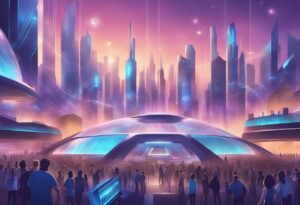
The rise of the metaverse has brought about new technologies that are shaping the music industry. These technologies are transforming the way music is created, distributed, and consumed. In this section, we will explore three key technologies that are shaping the metaverse music scene: Blockchain and NFTs in Music, Immersive Audio and Visual Technologies, and Development Platforms and Engines.
Blockchain and NFTs in Music
Blockchain technology is revolutionizing the music industry by providing a secure, decentralized platform for music distribution. NFTs, or non-fungible tokens, are a type of digital asset that can be used to represent ownership of music and other creative works.
This allows artists to monetize their music in new ways, such as selling limited edition NFTs of their albums or songs. The use of blockchain and NFTs in music also provides a transparent and fair payment system for artists, ensuring that they receive proper compensation for their work.
Immersive Audio and Visual Technologies
Spatial audio and real-time 3D graphics are transforming the way music is experienced in the metaverse. Spatial audio technology allows for a more immersive and realistic audio experience, with sound that moves around the listener in a 3D space.
This technology can be used to create interactive music experiences that allow users to explore and interact with virtual environments while listening to music. Real-time 3D graphics can be used to create stunning visual effects that enhance the music experience, making it even more immersive and engaging.
Development Platforms and Engines
Development platforms and engines such as Unreal Engine are making it easier for artists and developers to create interactive music experiences in the metaverse. These platforms provide a range of tools and resources for creating virtual environments, 3D models, and interactive experiences. With the use of these platforms, artists can create unique and engaging music experiences that allow users to explore and interact with their music in new ways.
The metaverse is transforming the music industry by providing new technologies and platforms for creating, distributing, and experiencing music. Blockchain and NFTs are providing a new way for artists to monetize their work, while immersive audio and visual technologies are enhancing the music experience in new and exciting ways.
Development platforms and engines are making it easier for artists and developers to create interactive music experiences that push the boundaries of what is possible.
The Role of Artists and Fans in Metaverse Music
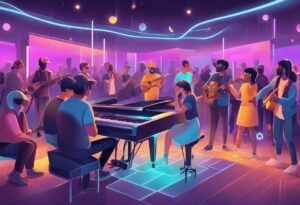
Artists and fans are at the forefront of the metaverse music revolution. The metaverse has opened up new opportunities for artists to create and own digital art and music, engage fans in virtual spaces, and collaborate with other artists and partners.
Creating and Owning Digital Art and Music
The metaverse provides a platform for artists to create and own digital art and music through non-fungible tokens (NFTs). NFTs allow artists to sell and distribute their work directly to fans, without the need for intermediaries. This gives artists greater control over their work and allows them to earn royalties from their creations.
Engaging Fans in Virtual Spaces
The metaverse allows artists to engage with fans in virtual spaces, creating unique and immersive experiences. Avatars allow fans to interact with their favorite artists and attend virtual concerts and events. This creates a new level of engagement between artists and fans, and allows for a more personalized experience.
Collaborations and Partnerships
The metaverse has also opened up new opportunities for collaborations and partnerships between artists and other entities. Record labels, brands, and gaming companies are all looking to partner with artists to create unique experiences for fans. These collaborations can lead to new revenue streams for artists and provide fans with exciting new experiences.
The metaverse is changing the music industry, and artists and fans are at the forefront of this revolution. The metaverse provides new opportunities for artists to create and own digital art and music, engage with fans in virtual spaces, and collaborate with other artists and partners. The possibilities are endless, and the future of metaverse music is bright.
Monetization and Value in the Metaverse
New Revenue Streams for the Music Industry
The metaverse offers a new landscape for the music industry to monetize its content. With the advent of virtual concerts and performances, artists can reach a global audience without the need for physical venues. This not only eliminates the costs associated with venue rentals, but also increases the potential revenue streams. The metaverse provides a platform for artists to sell virtual merchandise, such as clothing, accessories, and other items related to their brand.
Moreover, the metaverse allows for the creation of new revenue streams through the use of non-fungible tokens (NFTs). NFTs are unique digital assets that can be used to represent ownership of music, artwork, and other creative content. By leveraging NFTs, artists can sell limited edition digital content to fans, such as exclusive tracks, concert footage, and other digital assets.
Virtual Goods, Tokens, and Rights Management
The metaverse also provides a new way to manage and monetize music rights. With the use of blockchain technology, music rights can be tracked and managed in a transparent and secure manner. This not only ensures that artists are fairly compensated for their work, but also provides a way for fans to invest in their favorite artists and their music.
In addition, the metaverse offers a new way to monetize virtual goods and tokens. Fans can purchase virtual goods, such as concert tickets, merchandise, and other digital assets, using cryptocurrency. By leveraging blockchain technology, these transactions can be tracked and managed in a secure and transparent manner.
The metaverse presents a unique opportunity for the music industry to monetize its content and create new revenue streams. By leveraging virtual goods, tokens, and rights management, artists can reach a global audience and monetize their content in new and innovative ways.
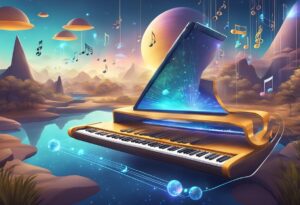
Future Trends and Theoretical Implications
Interconnectivity and Scale of Virtual Music Experiences
The future of music in the metaverse is expected to be characterized by interconnectivity and scale. The development of virtual worlds and mixed reality technologies has enabled musicians to connect with their fans in ways that were previously impossible. Virtual concerts and festivals are becoming increasingly popular, and the scale of these events is only expected to grow in the coming years.
Musicians and event organizers are exploring ways to make virtual concerts more engaging and interactive. They are experimenting with new technologies such as haptic feedback and motion capture to create more immersive experiences for fans. In addition, virtual worlds are being designed to accommodate larger audiences, which will allow musicians to reach more people than ever before.
Innovations in Mixed Reality and Music
Mixed reality is expected to play a significant role in the future of music in the metaverse. Advances in mixed reality technology are enabling musicians to create more immersive and interactive experiences for their fans. Mixed reality technologies such as augmented reality and virtual reality are being used to create virtual concerts and festivals that allow fans to interact with their favorite artists in new and exciting ways.
One of the most exciting innovations in mixed reality and music is the use of holographic technology to create virtual performances. Holographic technology allows musicians to create virtual versions of themselves that can perform in real-time alongside live musicians. This technology has already been used to create virtual performances by artists such as Tupac and Michael Jackson.
Theoretical Explorations of Music in Virtual Worlds
The future of music in the metaverse is not just about technological innovation. Theoretical explorations of music in virtual worlds are also expected to play a significant role in shaping the future of music. Researchers are exploring the potential of virtual worlds as a space for music creation and experimentation.
One of the most interesting theoretical implications of music in virtual worlds is the potential for new forms of musical expression. Virtual worlds offer a unique space for musicians to explore new sounds and styles that may not be possible in the physical world. This could lead to the development of new genres of music that are unique to the metaverse.
The future of music in the metaverse is expected to be characterized by interconnectivity, scale, innovation, and theoretical exploration. The development of new technologies such as mixed reality and holographic technology will enable musicians to create more immersive and interactive experiences for their fans.
At the same time, researchers are exploring the potential of virtual worlds as a space for music creation and experimentation. As the metaverse continues to evolve, it is likely that music will play an increasingly important role in shaping the future of virtual worlds.
Frequently Asked Questions
How can artists perform live in the metaverse?
Artists can perform live in the metaverse by using virtual reality technology to create a realistic concert experience. They can use avatars to interact with the audience and create a more immersive experience. The use of virtual reality technology allows artists to reach a global audience without the need for physical travel.
What platforms support music experiences in the metaverse?
Several platforms support music experiences in the metaverse, including Decentraland, Somnium Space, and The Sandbox. These platforms allow users to create and share music in virtual reality environments. They also provide tools for artists to monetize their music and reach a wider audience.
In what ways does the metaverse impact music distribution?
The metaverse has the potential to revolutionize music distribution by allowing artists to reach a global audience without the need for traditional distribution channels. It also provides new opportunities for artists to monetize their music through virtual concerts and merchandise sales. However, the use of non-fungible tokens (NFTs) in music distribution has raised concerns about the impact on traditional music distribution models.
How do non-fungible tokens (NFTs) relate to music ownership and rights?
NFTs can be used to represent ownership and rights to music in the metaverse. They allow artists to monetize their music by selling unique digital assets to fans. However, the use of NFTs in music ownership and rights has raised concerns about the impact on traditional music distribution models and the potential for fraud and copyright infringement.
What are the benefits for fans attending concerts in the metaverse?
The benefits for fans attending concerts in the metaverse include the ability to attend concerts from anywhere in the world, the ability to interact with artists and other fans in real-time, and a more immersive concert experience. Fans can also purchase virtual merchandise and support their favorite artists directly.
How does virtual reality technology enhance music experiences in the metaverse?
Virtual reality technology enhances music experiences in the metaverse by creating a more immersive and interactive experience for fans. It allows fans to feel like they are attending a real concert and interact with artists and other fans in real-time. Virtual reality technology also allows artists to create unique and memorable concert experiences that are not possible in the physical world.

